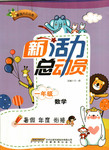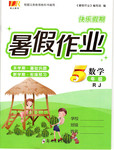题目内容
Toyota is the world's largest automaker, but its road to success has been long and filled with speed bumps(颠簸).
1958:The company's first foray into the American market was the Toyopet in 1958. It was a flop.
1964:Toyota introduced their Corona line of automobiles and sales hit 6, 400 in 1965,
marking an increase in popularity.
1969:Toyota began importing the Corolla and in 1985 it would become the first Toyota built in the U.S.
1975:Toyota surpassed the popular German brand Volkswagen to become the top import sold in the U.S.
1986:The National Highway Traffic Safety Administration ordered its first recall of Toyota cars due to "speed control" problems.
1988:The First North American Toyota plant opened in Georgetown, Ky.
1989:Toyota introduced the Lexus LS 400, the company's first U.S. luxury car. It was a major hit.
1997:Toyota debuted their Prius gas-electric hybrid car.
2002:The first consumer complaints emerged of the Camry's engine surging under braking.
2004:The NHTSA opened a defect investigation into 2002-2003 Camry, Camry Solara and Lexus ES models.
2006:Toyota "Americanizes" and opened a new plant in Texas to build full-size pickups
2007:Toyota surpassed General Motors to become the world's largest automaker.
2007:The NHTSA investigated pedal entrapment in some Toyota vehicles, which led recalls of floor mats on Camry and Lexus models.
2007:The NHTSA investigated pedal entrapment in some Toyota vehicles, which led recalls of floor mats on Camry and Lexus models.
Aug. 2009:An off-duty California Highway Patrol officer and three family members were killed when their rental 2009 Lexus ES speeds out of control.
Nov. 2009:Toyota recalled 3.8 million Lexus and Toyota models to remove floor mats that can trap pedals.
Jan. 2010:Toyota recalled approximately 2.3 million more vehicles with potential sticking pedal problems. On Jan. 26, Toyota stopped selling eight models involved in the recall.
Feb. 2010:Prius and Lexus hybrids are now being recalled for brake problems in 2010 models.
1.Which of the following brands belong to Toyota family?
A. Toyopet, Volkswagen, Lexus, Prius
B. Camry, Prius, Lexus, Georgetown
C. Corona, Prius, Lexus, Corolla
D. General Motors, Lexus, Camry, Corolla
2.The underlined the word in Para.6 probably means:
A. appreciation B. sorrow C. withdrawal D. resolve
3. We can infer from the passage that____________
A. Lexus LS 400 is a cheaper car
B. Prius may be a kind of environmentally friendly car
C. Corona became popular as soon as introduced to the US
D. Toyota’s plant opened in Georgetown symbolized its “Americanize” tactics
4. The purpose of this passage is to
A. advertise for Toyota
B. introduce Toyota’ s struggle in the US
C. uncover Toyota’s braking problems
D. display Toyota’s glory
5.What is the best title of the passage?
A. The world’s largest automaker B. The rise of Toyota
C. Toyota meeting problems in the US D. Toyota’s failure in the US
1.C
2.C
3.B
4.B
5.B
【解析】略

 新活力总动员暑系列答案
新活力总动员暑系列答案 龙人图书快乐假期暑假作业郑州大学出版社系列答案
龙人图书快乐假期暑假作业郑州大学出版社系列答案Toyoda said those changes were being made nearly around the clock,but during three hours of often tense questions and answers he repeated that there was no link to the vehicle’s electronic systems.
Many drivers making complaints against Toyota and the government say their acceleration problems had nothing to do with floor mat interference(油门踏板故障)or sticky gas pedals(刹车).Outside experts have suggested electronic problems.
House lawmakers expressed serious criticism on Toyoda,the grandson of the company’s founder.
The National Highway Traffic Safety Administration(NHTSA)is seeking records on Toyota’s recalls and is conducting its own review on whether electronics were behind the car faults.NHTSA also continues to look into steering complaints from drivers of the popular Corolla model.
Toyota has recalled 8.5 million cars,more than 6 million of them in the United States.
It may be a while before car buyers believe that Toyota really makes safe cars.
Toyota’s January sales already fell 16 percent even as most other automakers jumped back from last year’s bad results.Analyst Koji Endo of Advanced Research Japan in Tokyo said he expects February sales,due out next week,to be down 30 percent to 40. Toyota’s sales problem could continue beyond that.
It will take some time to feel the full effect of this,he said.
【小题1】The best title for this passage is .
| A.Toyota is in trouble | B.Toyota is under hearing |
| C.Toyota is finished | D.Toyota is still running |
| A.America hopes that Toyota apologizes to the US customers. |
| B.America wants to get Toyota out of the US market. |
| C.America wants to help Toyota out of difficulty. |
| D.America hopes that Toyota admits their cars have electronic system problem. |
| A.Toyota provides very good post sale service. |
| B.Toyota’s biggest market is in the United States. |
| C.Toyota will be closed soon. |
| D.Toyota’s dealership in the US will all be closed. |
| A.Analyst Koji Endo is fully confident about Toyota |
| B.Toyota could meet a worse situation |
| C.Toyota would get out of trouble sooner or later |
| D.Toyota would build up a better reputation among its customers |